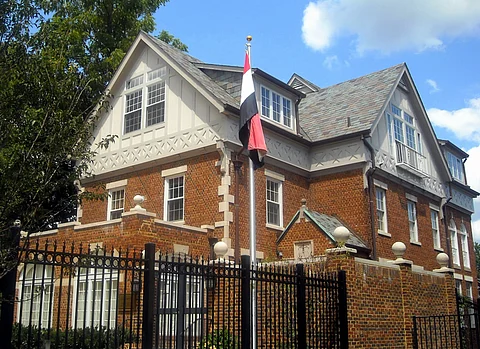

The Iraqi government has firmly pushed back against U.S. criticism of its recently signed security agreement with Iran, framing the deal as an exercise of national sovereignty.
On Monday, Iran’s Secretary of the Supreme National Security Council, Ali Larijani, visited Baghdad, where he met with Iraqi National Security Adviser Qasim al-Araji. The two signed a memorandum of understanding (MoU) that updates a 2023 agreement on cooperation in border security and counterterrorism operations. Iraqi officials described the agreement as aimed at enhancing stability along shared borders and bolstering regional security.
A day later, U.S. State Department Spokeswoman Tammy Bruce voiced Washington’s opposition, arguing the arrangement “contradicts Washington’s goals in supporting Iraqi security institutions” and could render Iraq “a subservient state to Iran.” Bruce also criticized a related Iraqi parliamentary bill concerning the Popular Mobilization Forces (PMF), calling it inconsistent with U.S.-Iraq bilateral security objectives and warning it could undermine Iraq’s sovereignty. She stressed that the U.S. supports “genuine Iraqi sovereignty” rather than legislation or agreements that draw Baghdad closer to Tehran.
In a swift response on Wednesday, the Iraqi Embassy in Washington issued a statement rejecting Bruce’s remarks as “interventionist and unacceptable.” The embassy emphasized Iraq’s constitutional right to sign agreements in line with its national interests and accused Washington of attempting to create divisions among neighboring countries.
The statement also dismissed allegations of foreign interference in Iraq’s domestic affairs, insisting that all decisions reflect the country’s “national will.” Iraqi officials argued that the MoU with Iran is designed to promote regional stability, not geopolitical alignment.
Iraq’s delicate balancing act comes amid its long history of entanglement with Washington. The U.S. military has maintained a presence in Iraq for 19 of the last 22 years, and Baghdad still deposits its oil revenues in a New York bank, requiring weekly requests to access funds.
Despite these constraints, Iraq has increasingly sought to diversify its partnerships. Recently, Baghdad revived a major oil deal with China that it had previously suspended under Western pressure, signaling a broader effort to pursue an independent foreign policy.